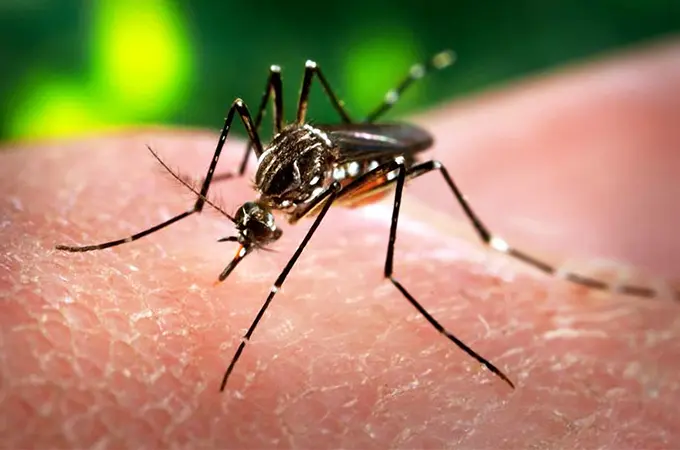Headlines around the world have cautioned pregnant women and couples trying to become pregnant about the effects of the Zika virus. One of the most alarming results of the spread of Zika virus has been the impact on babies born to mothers with Zika. These children are in danger of fetal birth defects including microcephaly. The Centers for Disease Control and Prevention (CDC) describes microcephaly as, “a birth defect where a baby’s head is smaller than expected when compared to babies of the same sex and age. Babies with microcephaly often have smaller brains that might not have developed properly.” At Shady Grove Fertility we are committed to providing the most accurate and up to date information about the Zika virus and pregnancy, as well as educating our patients on the simple prevention steps men and women who are trying to conceive should take this summer.
How and where is Zika virus spreading?
Zika virus can only be transmitted via direct mosquito bite or sexually transmitted by a partner who has been infected. Currently, mosquito breeds carrying the virus are clustered in the Caribbean, Central and South America, as well as parts of Africa and Pacific Islands.
The CDC has a comprehensive list of countries around the world that should be currently avoided. If your partner has been to any of these areas recently the CDC advises intercourse with condoms. Pregnant women who have partners who have recently traveled to infected regions should consult with their physicians before intercourse.
Zika Virus and Pregnancy: What We Know Now
On Friday, May 20, the New York Times shared the CDC’s latest update about the Zika virus in the U.S. and abroad. Of the 279 pregnant women the agency is now monitoring, just over half are in the 50 states and District of Columbia with the remaining 122 in Puerto Rico and other territories. Notably, the Times reports, “in most cases, it was difficult to determine how the women became infected because they had lived in or had traveled to areas where mosquitoes carrying the virus were biting.” Currently there is no evidence that Zika-carrying mosquitoes are in the continental U.S. or territories.
Protect Yourself from Zika: Be Vigilant This Summer
The CDC website offers comprehensive news about Zika virus with the following safety tips to avoid mosquito bites:
- Wear long sleeve shirts and pants.
- Stay in places with air conditioning and screens on all windows to prevent mosquitoes from entering.
- Apply sunscreen BEFORE insect repellant.
- Look for EPA-approved insect repellants that contain one of these ingredients: DEET, picaridin, IR3535, oil of lemon eucalyptus, or para-menthane-diol. Products with EPA approval are okay for use by pregnant and breastfeeding women. Follow instructions on the package and reapply as indicated.
- Use indoor and outdoor insect spray.
- In areas outside the home that are frequently in use during the summer, keep them scrubbed, clean, and dry. Mosquitos lay their eggs in moist, dark places like under patio furniture and swarm near water like in bird baths.
- Inside the home empty, turnover, and scrub every item such as flower pots and vases that water is in.
Zika Virus and Pregnancy: Trying to Conceive
The CDC specifically addresses what cautionary measures men and women who are trying to conceive should take. In addition to the above list to prevent mosquito bites, the CDC also provides guidance for sexual intercourse with a partner who may have come in contact with the virus, and a timeline for trying to conceive after exposure. For healthcare providers, CDC has provided specific guidance for patients who have been exposed to the virus.
Suggested time frame to wait before trying to get pregnant:
Possible exposure via recent travel or sex without a condom with a man infected with Zika
| Women | Men | |
| With Zika symptoms | Wait at least 8 weeks after symptoms start | Wait at least 6 months after symptoms start |
| No Zika symptoms | Wait at least 8 weeks after exposure | Wait at least 8 weeks after exposure Talk with your healthcare provider |
People living in areas with Zika
| Women | Men | |
| With Zika symptoms | Wait at least 8 weeks after symptoms start | Wait at least 6 months after symptoms start |
| No Zika symptoms | Talk with doctor or healthcare provider | Talk with doctor or healthcare provider |
For men and women who are trying to conceive this summer and experiencing infertility, it is important to speak with a fertility specialist. From the CDC:
“Decisions about pregnancy planning are personal and complex, and the circumstances for women and their partners will vary. Women and their partners should discuss pregnancy planning with a trusted doctor or healthcare provider. As part of counseling with healthcare providers, some women and their partners living in areas with active Zika virus transmission might decide to delay pregnancy.”
If you are concerned about Zika virus and pregnancy and experiencing infertility, please call Shady Grove Fertility’s new patient center at 1-877-971-7755.
Editors Note: This post was originally published in May 2016. For the most up-to-date information on Zika, please read Zika Virus: Getting Pregnant Amid Concerns.






